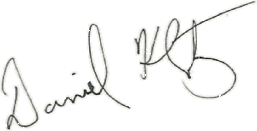![]()
Dear Reader,
Nouns meaning "young people" are used as thoughtlessly and frequently
as any other word by the media today. In their overuse, these words--adolescent,
youth, juvenile, middle schooler, high schooler, teenager--have been loaded
down with all sorts of connotations, most of them negative.
It's sad. Yet I find hope in the most unusual of places in popular culture:
gangster rap. In this hard-core, usually angry, subcategory of the musical
style, the word "nigger" (or, rather, "nigga") pops up
about once a sentence. These rappers are Afro-Americans, black men.
It's a specific phenomenon that sociologists recognize: a group of people takes
a derogatory term that other people use to demean them, and they own it for
themselves, turning it into a neutral or positively charged word. It has happened
with a host of other words, recently negro, queer. It can work the other way
around, of course: people can turn a positive or neutral name for another group
into a demeaning term: politician, Westerner.
Through Frodo's Notebook, we hope to help the cause of clearing the word teenager
of its demeaning connotations. Angst-filled, selfish, rebellious, insecure,
reckless, violent--this is the the word's baggage that we are up against. Read
the work in this publication, all created by teenagers, by people age thirteen
through nineteen, and our hope, if you are an adult, is that you will see teens
in more of their complexity, particularly to see that teenagers can be compassionate,
eager to learn, productive, deep, creative, and bright. If you are a teenager
yourself, we hope you will be encouraged by an entire publication and its readership
who think that "teenager" is a name to be proud of.
I see this as a social justice issue that we address indirectly. Our focus
is, and has always been, to publish great writing by young people around the
world. But a wonderful outcome or byproduct of doing so is that perhaps "teenager" will
evolve into meaning something different, something richer and truer. No one
should feel belittled when she is called a teenager.
My fellow editors and I are not alone in caring about social justice. Many
of our contributors are, too, and it crops up subtlely in their writing. Take,
for instance, the poems "Holy War" by Jill Abramson and "Masquerade" by
Tracy Mumford in this issue, along with the essay "Rain" by Sean
Lyens and short story "In Arms" by Monica Rana.
Several of the pieces in this issue come to us via the United States' National
Scholastic Writing Awards. Since 1923, this awards program has recognized the
finest writing by American middle and high school students. All the writing
appearing in this issue won gold awards on the national level. Only a handful
of students are so honored each year, and they come from across the country
to The Kennedy Center in Washington, D.C. to celebrate their art.
The Scholastic Writing Awards have always been dedicated to this aspect of
social justice, also. They have asked, "Young athletes receive so much
attention, praise, and respect, so what can we do to garner the same attention,
praise, and respect for young artists?" We are thrilled to be working
with such a fine organization.
In other Frodo's Notebook news, we are now accepting very specific submissions
of visual artwork. We have begun putting together guidelines for articles as
well--commentary and analysis on all things political, cultural, artistic,
religious, economic, and generally interesting. Of course, we're only looking
for art and articles produced by teenagers.
Further, we are applying for the status of nonprofit corporation in the state
of Pennsylvania. Once this status is granted, we will be able to raise funds
to assure a bright future for Frodo's Notebook and to increase its quality
and explore new possibilities. Right at the front of our brains is a print
edition--a glossy magazine version of each month's online issue.
As always, we welcome your thoughts, questions, and ideas.
Thanks for reading.
Sincerely,

Daniel Klotz
Redactor in Chief
Frodo's Notebook
dan@frodosnotebook.com